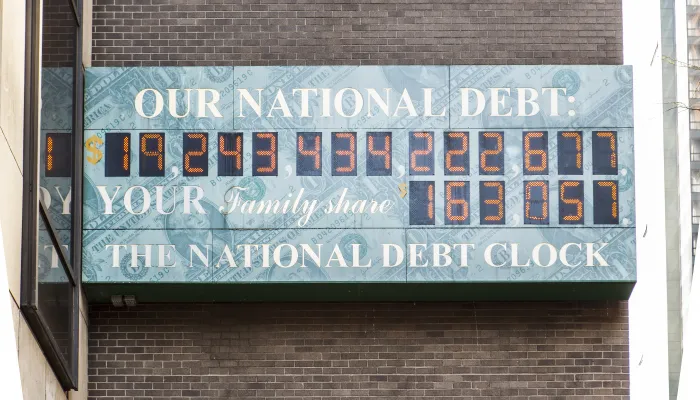Stiglitz, Stimulus, the Financial Sector and the Genie
Nobel Laureate Joseph Stiglitz stopped by New America this week to discuss his new book "Freefall", about our economic and financial crisis.
For the fiscal hawks among us, he warns: "Our economic growth has been based … on borrowing from the future: we have been living beyond our means."
But, he has other worries for the immediate future:
- He’s still more worried about deflation than inflation, given the continuing weakness of the economy.
- He argues that it is very important now for additional stimulus resources to go to state and local governments to help offset state tightening to satisfy their balanced budget requirements. State and local fiscal tightening had made the Great Depression worse, he noted.
- He proposes a Chapter 11 bankruptcy framework for households, particularly since otherwise record high home foreclosures will perpetuate the vicious cycle keeping job creation down.
But much of his talk and his book were/are devoted to fixing the financial sector - provocative and important reading in the wake of this week's Volcker Rule announcement by President Obama. His proposed financial sector fixes seem along the lines of the Volcker Rule proposals.
For us, however, there are important fiscal issues to be raised. Going forward, the taxpayer costs of not getting the fix right for the financial sector could be high. And we've already spent massive amounts of money to stop the economy’s freefall caused by the financial sector crisis. Taxpayer anger has been increasingly visible - and understandable.
But, with all due respect to one of the foremost thinkers of our time, does it make sense to make changes so that the financial sector will consist of, on the one hand, low return, plain vanilla banking, but, on the other hand, high risk, high return, essentially unregulated activity? Didn't the banks get into trouble in the first place because of their desire/need to compete with the high flyers? And, isn’t it significant that the major firms precipitating the collapse (AIG, Lehman Brothers, Bear Sterns) and costing us the most taxpayer dollar (most notably AIG) were not commercial banks and were not within the fold of the formal safety net?
Just think about it a bit more: as the economic situation improves, will you give your money to a taxpayer-insured low yield bank or would you search for a better return - especially if you need additional income?
And aren't we still begging the critical question of how to manage risk at a time of global capital liberalization and technological change (not to mention structural shifts in industry and global markets)? Can we stuff only one hand of the genie back into the bottle? Although done in the name of the taxpayer, won't this ultimately diminish the viability of the financial sector that would be covered by the deposit insurance safety net, and therefore potentially cost the taxpayer in the end - however well intentioned? Why is no one talking about "smart regulation" any more?
For more on the Volcker position, see the report he headed last year from the Group of Thirty ("Financial Reform: A Framework for Financial Stability"); and for more on concerns about this approach, see the most recent piece by Douglas Elliott of Brookings ("More Nuance Needed in Bank Regulations").


